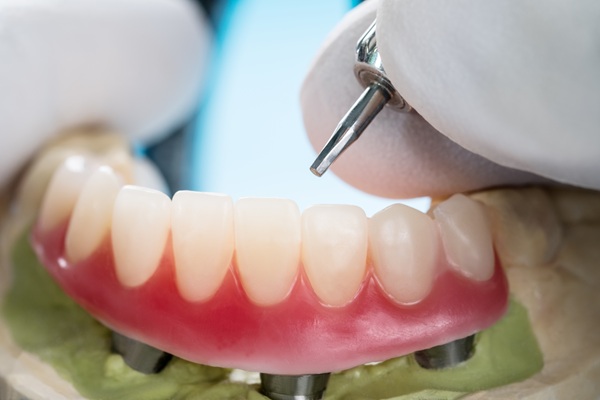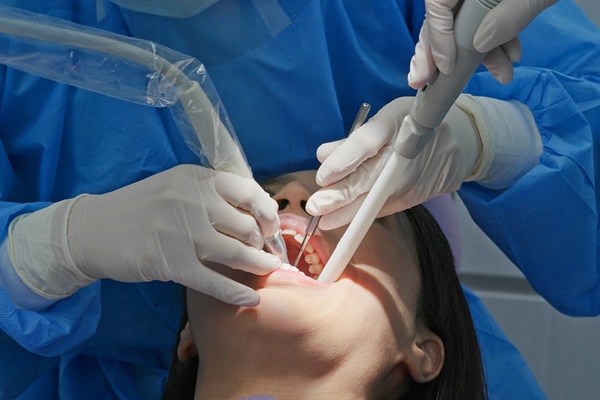How a TMJ Dentist Can Help Treat Jaw Pain

Temporomandibular joint (TMJ) disorders can cause significant jaw pain and affect everyday functions like speaking, eating, and overall comfort. A TMJ dentist specializes in diagnosing and treating issues related to the jaw joint and surrounding solutions. These dental professionals offer effective solutions that address the root cause of your jaw pain.
Understanding TMJ disorders
The temporomandibular joint connects the lower jaw (mandible) to the skull, which allows patients to chew, speak, and open their mouth. TMJ disorders, also known as TMD, occur when this joint or the muscles surrounding it are weak or injured. Common symptoms include:
- Chronic jaw pain
- Facial pain
- Headaches or migraines
- Shoulder and neck pain
- Clicking or popping noises from the jaw
- Difficulty when opening or closing the mouth
- Limited jaw mobility
- Tinnitus (ringing in ears)
There is no singular cause of TMJ. It can result from a combination of factors. Common causes of TMJ include teeth grinding (bruxism), teeth misalignment (malocclusion), arthritis, jaw injuries, and stress-induced muscle tension. Bad habits like poor posture and chewing on pens can also exacerbate symptoms.
The importance of early jaw pain treatment
Seeking treatment from a TMJ dentist in its early stages can prevent the condition from worsening. Persistent jaw pain and untreated TMJ disorders can lead to complications, including chronic headaches, severe joint damage, and hearing issues. An early diagnosis and appropriate treatment allow patients to improve the overall quality of their life without the discomfort of jaw pain.
Diagnosis by a TMJ dentist
A TMJ dentist begins the diagnostic process with a thorough evaluation. This appointment typically includes reviewing the patient's medical history, a physical examination of the jaw, and asking about their symptoms. The dentist may assess the patient's jaw movement, listen for clicking sounds, and examine their teeth alignment. Additionally, they may utilize diagnostic imaging, such as X-rays, CT scans, or MRIs, to understand the joint's condition.
An accurate diagnosis is an essential part of the treatment process. It allows the TMJ dentist to develop a treatment plan tailored to the patient's unique situation and oral anatomy. It ensures that the dentist is able to identify the underlying cause of the jaw pain to reduce the risk of recurring or worsening symptoms.
Treatment options from a TMJ dentist
TMJ dentists offer a variety of treatment options. They range from non-invasive methods to surgical treatments. Some non-invasive treatments include:
- Oral appliances: Custom mouthguards or splints can help alleviate pressure on the jaw joint and prevent teeth grinding during sleep.
- Physical therapy: Exercises designed to stretch and strengthen jaw muscles around the joints and improve flexibility can help reduce pain and restore function.
- Medications: A TMJ dentist can prescribe anti-inflammatory drugs, muscle relaxants, or other medications to manage pain and reduce inflammation.
In severe cases, surgical interventions such as arthroscopy or open-joint surgery may be necessary. This type of procedure is typically considered after conservative treatments have failed to provide effective jaw pain relief.
Call our office to schedule an appointment
Consulting a TMJ dentist can diagnose and treat the root cause of your jaw pain, improving the overall quality of your life. The Safe Harbor Dental is here to help you feel better. Call our Chesapeake office to learn more about our TMJ treatment options or to schedule an appointment.
Request an appointment here: https://shdentalva.com or call Safe Harbor Dental at (757) 333-0087 for an appointment in our Chesapeake office.
Check out what others are saying about our dental services on Yelp: TMJ Dentist in Chesapeake, VA.
Related Posts
If you have recently been diagnosed with TMJ disorder, a dentist might recommend getting a bite guard to ease the symptoms. TMJ disorder causes symptoms such as earaches, headaches and facial pain. Since the symptoms worsen gradually and appear unrelated, the condition can go undiagnosed and untreated, and it affects a patient's quality of life.Several…
For patients missing most or all of their teeth, implant-supported dentures provide a stable, natural-looking way to restore a full smile. This approach anchors a custom denture to dental implants placed in the jawbone for improved support. Within this category, patients often choose between fixed and removable designs. Understanding how each option works helps patients…
Scaling and root planning treats periodontal disease. However, not every case of periodontal disease requires scaling and root planing. This review helps you determine if treatment is necessary for you and discusses how the treatment process works and how to prevent gum disease. Anyone who has signs of a progressive stage of periodontal disease should visit…
A dental bridge is a popular solution to replace one or more missing teeth, restoring the function and appearance of your smile. However, you may be wondering how long a dental bridge will last. While several factors will influence the longevity of the dental bridge, understanding the expected lifespan and necessary care can help you…


